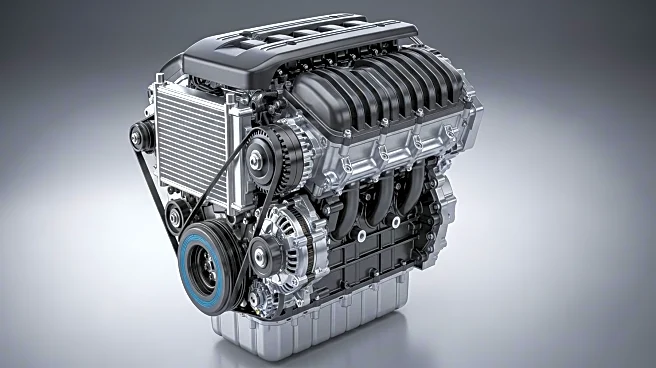What's Happening?
Nissan has unveiled what it claims to be the most thermally efficient engine ever used in a road car. The 1.5-liter turbocharged three-cylinder engine, codenamed ZR15DDTe, is part of Nissan's e-Power hybrid powertrain and is currently in production for the Europe-market Qashqai crossover. The engine's efficiency is attributed to the use of cold spray technology for valve seats, which enhances the intake port geometry and cooling performance. This innovation allows for a smoother air flow, improving the tumble flow and combustion efficiency. Nissan's new engine achieves a thermal efficiency of 42 percent, surpassing competitors like Toyota and Hyundai, which have engines with 41-percent efficiency.
Why It's Important?
The introduction of this highly efficient engine by Nissan could significantly impact the automotive industry, particularly in the hybrid vehicle segment. By improving fuel efficiency, Nissan's technology may reduce the overall cost of vehicle operation, making hybrid cars more attractive to consumers. This development also aligns with global efforts to reduce carbon emissions and reliance on fossil fuels, potentially influencing industry standards and encouraging other manufacturers to innovate in engine design. Nissan's advancement may also bolster its market position amid financial challenges, offering a competitive edge in the hybrid vehicle market.
What's Next?
Nissan's new engine technology could lead to further developments in hybrid powertrains, potentially influencing future vehicle designs and manufacturing processes. As the company continues to refine its technology, it may expand the application of this engine to other models and markets. Stakeholders, including environmental groups and industry competitors, will likely monitor the engine's performance and consumer reception closely. Additionally, Nissan may face scrutiny regarding the engine's reliability, given past issues with variable-compression engines.











